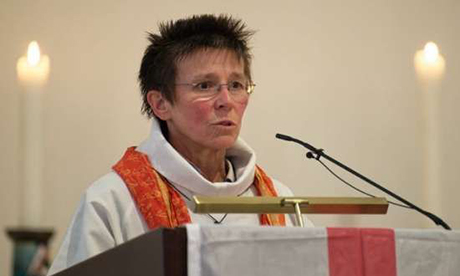Catholic women in Germany have taken part in a day of action as they strive for permission to give homilies during Mass.
For the second year in a row, Ulrike Göken-Huismann was one of twelve women in twelve different locations who took part in a nationwide action called “Preachers’ Day”.
“Our goal is to make it clear that women can preach and can do it well,” says Göken-Huismann, who has two children.
“The Church is missing out on a lot by not allowing us to do it. In fact, it’s a missed opportunity! There is a wealth of talent among women that needs to be tapped into,” she insists.
“The apostles were not all men.”
“The feast of St. Junia on this Monday is decisive,” said Marianne Arndt, a Ward official who preached at a mass in Cologne.
“Junia was definitely a female apostle who was mistaken for a man for a long time,” Göken-Huismann points out.
“Fortunately, thanks to new translations, it has become clear that she was a woman. With our event — 12 Women, 12 Places, 12 Homilies’ — we want to show that not all apostles were men,” the theologian adds.
“We say: If it is the case that there were also outstanding female apostles, why are women only allowed to be emergency stoppers for priests? We want to take our rightful place in the Church,” Arndt added.
Altar servers, lecturers and communion helpers were also only approved by Rome many years later. “I think we have to move forward so as not to lose the women in our Catholic Church,” warned Arndt.
“We have to get away from the concentration of power in the male church.”
Göken-Huismann is convinced that women will be able to become priests one day. But, she knows that “the road will be long.”
“We’re taking it one step at a time,” she says.
“These various actions reflect a growing dissatisfaction on the part of the faithful,” says Michael Seewald, a teacher of theology at the University of Münster.
“These protest movements are supported by a majority of the country’s Catholics. The opponents have very good contacts with Rome and are making their voices heard. But they are a small group,” he notes.
“It would be possible to find solutions at the regional level and to leave room for maneuvering on the ground for these issues,” Seewald believes.
“But I don’t know if Rome is ready for that. Rome is looking at the German synodal path very sceptically. It has sent negative messages on the four topics of discussion there. It is difficult to be very optimistic,” Seewald admits.
But women preachers like Ulrike Göken-Huismann remain hopeful and optimistic. Their new slogan is, “Stay in the Church! Demand change!”
Sources
